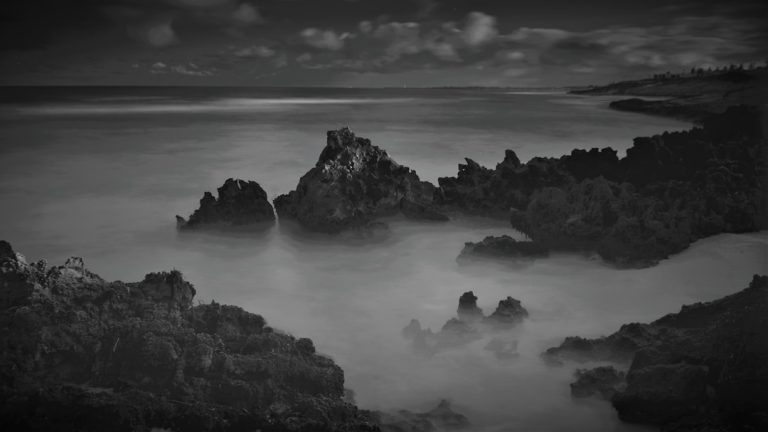
“Dune,” a monumental work of science fiction, has captivated readers since its publication in 1965. Set against the backdrop of a distant future where interstellar travel is commonplace, the novel explores complex themes of politics, religion, and ecology through the lens of a richly constructed universe. The story unfolds on the desert planet of Arrakis, also known as Dune, which is the only source of the universe’s most valuable substance: the spice melange.
This spice not only extends life and enhances mental abilities but also enables space travel by allowing navigators to foresee safe paths through space. The intricate world-building and profound philosophical inquiries embedded in “Dune” have established it as a cornerstone of the science fiction genre. The narrative follows Paul Atreides, the heir of House Atreides, as he navigates the treacherous political landscape of Arrakis after his family is betrayed.
The novel delves into the intricacies of power dynamics, ecological sustainability, and the human condition, making it a multifaceted exploration of society and its complexities.
The book’s enduring popularity has spawned sequels, adaptations, and a dedicated fanbase, solidifying its status as a cultural touchstone.
Key Takeaways
- Dune is a science fiction novel written by Frank Herbert, first published in 1965, and is considered one of the greatest science fiction novels of all time.
- Frank Herbert was an American science fiction writer best known for his Dune series, which explores complex themes such as politics, religion, and ecology.
- The plot of Dune revolves around the desert planet of Arrakis, the only source of the valuable spice melange, and follows the journey of young Paul Atreides as he becomes embroiled in a power struggle for control of the planet.
- Themes and symbolism in Dune include the balance of power, environmentalism, and the hero’s journey, with the spice melange serving as a symbol of control and manipulation.
- The characters in Dune are complex and multifaceted, including Paul Atreides, his mother Lady Jessica, the villainous Baron Harkonnen, and the mysterious Fremen people of Arrakis.
The Author: Frank Herbert
Frank Herbert was born on October 8, 1920, in Tacoma, Washington. His early life was marked by a keen interest in literature and an insatiable curiosity about the world around him. Herbert’s diverse career included stints as a journalist, photographer, and even a speechwriter for a politician.
However, it was his passion for writing that ultimately led him to create one of the most influential works in science fiction history. Herbert’s experiences in journalism provided him with a unique perspective on societal issues, which he would later explore in depth through his fiction. Herbert’s fascination with ecology and philosophy played a significant role in shaping “Dune.” He was deeply concerned about environmental issues and the impact of human actions on the planet.
This concern is evident in the ecological themes that permeate “Dune,” where the desert landscape of Arrakis serves as both a setting and a character in its own right. Herbert’s extensive research into various subjects, including religion, politics, and psychology, allowed him to create a narrative that resonates on multiple levels. His ability to blend these diverse influences into a cohesive story is one of the hallmarks of his writing style, making “Dune” not only an engaging read but also a thought-provoking exploration of humanity’s future.
Plot Summary of Dune

The plot of “Dune” centers around Paul Atreides, the son of Duke Leto Atreides and Lady Jessica. The Atreides family is granted control over Arrakis by the Emperor, a move that sets off a chain of events leading to betrayal and conflict. Arrakis is a harsh desert world inhabited by the Fremen, a resilient people who have adapted to survive in extreme conditions.
The spice melange is central to their culture and economy, making control over its production vital for any noble house seeking power in the universe. As Paul and his family navigate the treacherous political landscape, they face opposition from House Harkonnen, their bitter rivals who previously ruled Arrakis.
There, they encounter the Fremen and begin to understand their culture and connection to the land. Paul’s journey transforms him from a sheltered nobleman into a leader destined to fulfill a prophecy that could change the fate of humanity. The narrative intricately weaves together themes of destiny, power struggles, and ecological awareness as Paul grapples with his identity and responsibilities.
Themes and Symbolism in Dune
| Themes and Symbolism in Dune | Description |
|---|---|
| Power and Politics | Explores the dynamics of power and politics in a feudal interstellar society. |
| Religion and Messianic Figures | Examines the role of religion and the concept of a messianic figure in shaping the destiny of the characters. |
| Ecology and Environmentalism | Highlights the importance of ecology and the impact of human activities on the environment. |
| Identity and Destiny | Explores the themes of identity, destiny, and the individual’s role in shaping their own future. |
| War and Conflict | Addresses the consequences of war and conflict on individuals and societies. |
“Dune” is rich with themes that resonate deeply with contemporary issues. One of the most prominent themes is the interplay between power and responsibility. Throughout the novel, characters grapple with their roles in a complex political landscape where alliances shift and betrayals are commonplace.
Duke Leto embodies the ideal leader who seeks to govern with honor and integrity but ultimately falls victim to the machinations of those who prioritize power over ethics. Paul’s evolution into a leader reflects the burdens that come with authority; he must navigate not only his own desires but also the expectations placed upon him by others. Another significant theme is ecological awareness.
Herbert’s portrayal of Arrakis serves as an allegory for real-world environmental issues. The planet’s harsh climate and reliance on water conservation highlight humanity’s relationship with nature and the consequences of exploitation. The Fremen’s deep understanding of their environment contrasts sharply with the exploitative practices of off-world powers seeking to extract spice without regard for ecological balance.
This theme resonates today as society grapples with climate change and sustainability, making “Dune” not just a tale of adventure but also a cautionary reflection on humanity’s impact on the planet.
Characters in Dune
The characters in “Dune” are intricately crafted, each representing different facets of human nature and societal structures. Paul Atreides stands at the center of this narrative tapestry as a complex protagonist whose journey from boyhood to leadership is fraught with challenges. His character embodies themes of destiny and transformation; he is not merely a passive figure but an active participant in shaping his fate.
As he learns about his abilities and responsibilities, Paul becomes increasingly aware of the weight of prophecy and its implications for both himself and those around him. Lady Jessica, Paul’s mother, is another pivotal character whose strength and complexity add depth to the story. A member of the Bene Gesserit sisterhood, she possesses extraordinary abilities that she imparts to Paul.
Her struggle between loyalty to her son and adherence to her order’s plans creates tension within her character arc. Additionally, characters like Duncan Idaho, Gurney Halleck, and Stilgar enrich the narrative by providing diverse perspectives on loyalty, honor, and survival in a harsh world. Each character’s motivations are intricately tied to their backgrounds and experiences, making them relatable yet distinct within Herbert’s expansive universe.
Influence and Legacy of Dune

The influence of “Dune” extends far beyond its initial publication; it has shaped not only science fiction literature but also popular culture at large. Many authors cite Herbert’s work as an inspiration for their own narratives, particularly in how it addresses complex themes such as ecology, politics, and religion within speculative fiction. The novel’s intricate world-building has set a standard for subsequent works in the genre, encouraging writers to create immersive universes that reflect real-world issues.
Moreover, “Dune” has left an indelible mark on film and television adaptations. Its themes have resonated with filmmakers seeking to explore similar narratives about power dynamics and environmental concerns. The novel’s legacy continues through various adaptations that strive to capture its essence while introducing it to new audiences.
The ongoing discussions surrounding its themes reflect its relevance in contemporary society, ensuring that “Dune” remains a vital part of cultural discourse.
Recommended Reading Order for the Dune Series
For those interested in delving deeper into Frank Herbert’s universe beyond “Dune,” there is an expansive series that continues Paul’s story and explores other facets of this intricate world. The recommended reading order begins with “Dune,” followed by its direct sequel, “Dune Messiah.” This second installment picks up several years after the events of “Dune,” focusing on Paul’s reign as Emperor and the challenges he faces as he grapples with his newfound power. Following “Dune Messiah,” readers can explore “Children of Dune,” which shifts focus to Paul’s children, Leto II and Ghanima.
This book delves into themes of legacy and transformation as Leto II embarks on his own journey toward becoming something greater than human. The series continues with “God Emperor of Dune,” which takes place thousands of years later and examines Leto II’s reign as he transforms into a hybrid being in pursuit of his vision for humanity’s future. The series concludes with “Heretics of Dune” and “Chapterhouse: Dune,” which further expand on the political intrigue and ecological themes introduced in earlier books while introducing new characters and factions vying for power in Herbert’s richly imagined universe.
Dune Adaptations: Films and TV Series
“Dune” has been adapted multiple times across various media, each interpretation bringing its unique vision to Herbert’s complex narrative. The first notable adaptation was David Lynch’s 1984 film, which attempted to condense the sprawling story into a single feature-length film. While visually striking and ambitious in scope, Lynch’s version received mixed reviews due to its pacing and narrative compression, leaving many fans divided over its fidelity to the source material.
In recent years, Denis Villeneuve’s adaptation has garnered significant attention for its faithful representation of Herbert’s work. Released in two parts, Villeneuve’s “Dune” (2021) focuses on the first half of the novel, capturing its intricate world-building and character development with stunning visuals and a strong cast led by Timothée Chalamet as Paul Atreides. This adaptation has been praised for its ability to convey the depth of Herbert’s themes while making them accessible to modern audiences.
Television adaptations have also explored “Dune,” including a miniseries produced by Sci Fi Channel in 2000 that covered both “Dune” and “Children of Dune.” This version received acclaim for its more extended format, allowing for deeper character exploration and plot development compared to previous adaptations. Each iteration reflects different aspects of Herbert’s work while contributing to its ongoing legacy within popular culture. Through these adaptations, “Dune” continues to inspire new generations of fans while prompting discussions about its themes and relevance in today’s world.
As technology advances and storytelling techniques evolve, it will be fascinating to see how future adaptations interpret this timeless tale.
If you enjoyed reading Dune by Frank Herbert, you may also be interested in exploring the themes of friendship and loyalty in the classic American novel Of Mice and Men. This article from USA Reading Club delves into the deep emotional connections between the characters in John Steinbeck’s masterpiece. To learn more about the importance of loyalty in literature, check out this insightful article.
FAQs
What is Dune by Frank Herbert about?
Dune is a science fiction novel set in the distant future, focusing on the desert planet of Arrakis and the struggle for control over its valuable resource, melange (also known as “spice”).
When was Dune by Frank Herbert first published?
Dune was first published in 1965.
Is Dune by Frank Herbert part of a series?
Yes, Dune is the first novel in a series of six books written by Frank Herbert, with additional novels and prequels written by his son, Brian Herbert, and co-author Kevin J. Anderson.
What genre does Dune by Frank Herbert fall into?
Dune is a science fiction novel, often considered a classic of the genre.
Has Dune by Frank Herbert been adapted into other forms of media?
Yes, Dune has been adapted into a film, television series, and graphic novels. A highly anticipated film adaptation directed by Denis Villeneuve is set to be released in 2021.
What are some themes explored in Dune by Frank Herbert?
Dune explores themes such as politics, religion, ecology, and the human experience, as well as the impact of power and control on individuals and societies.






